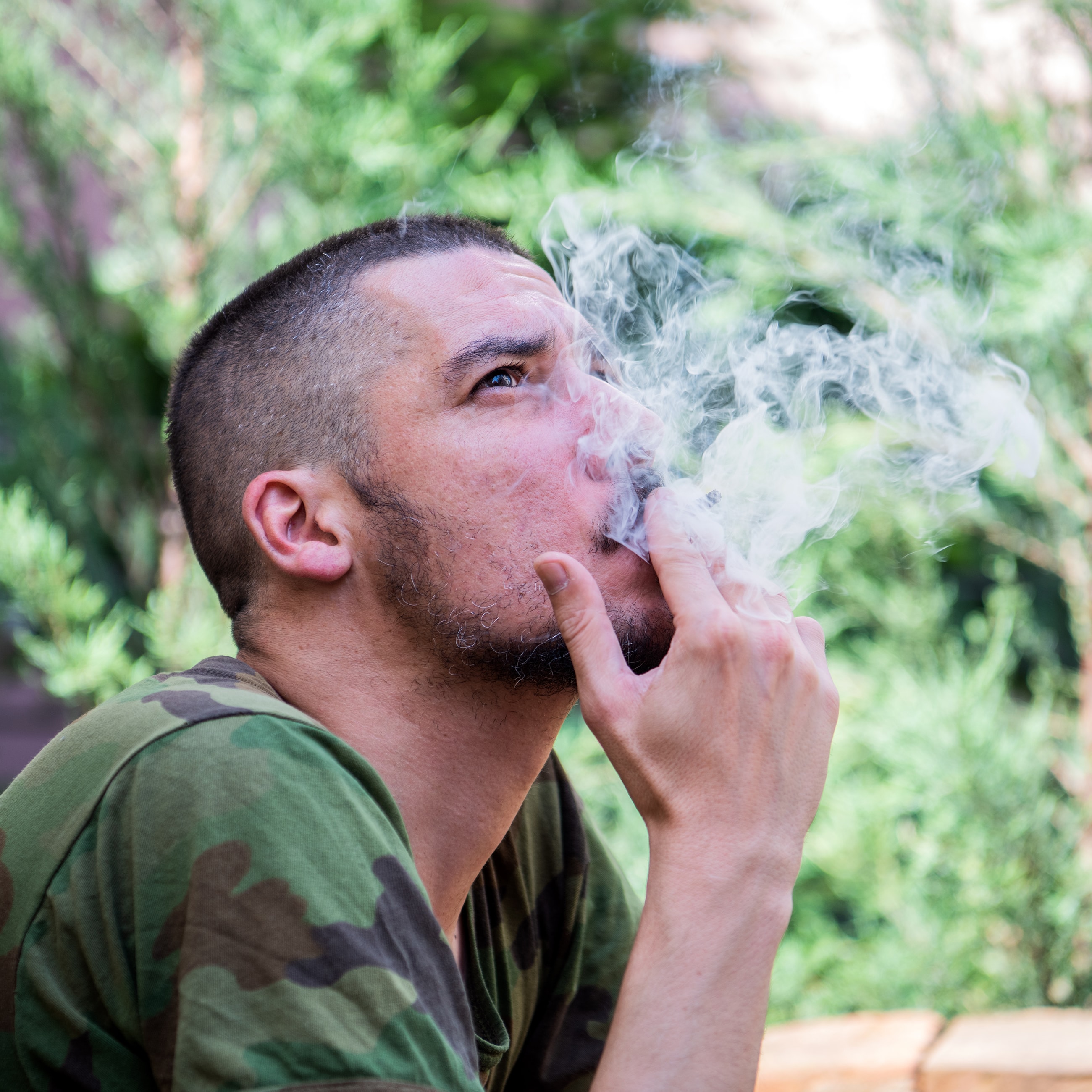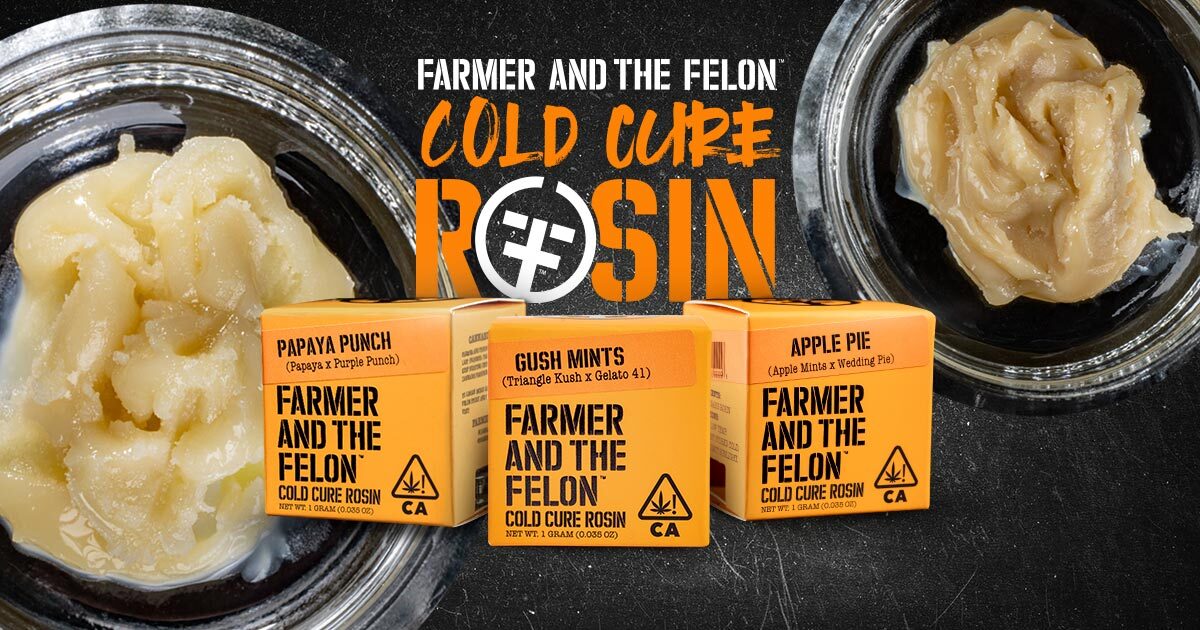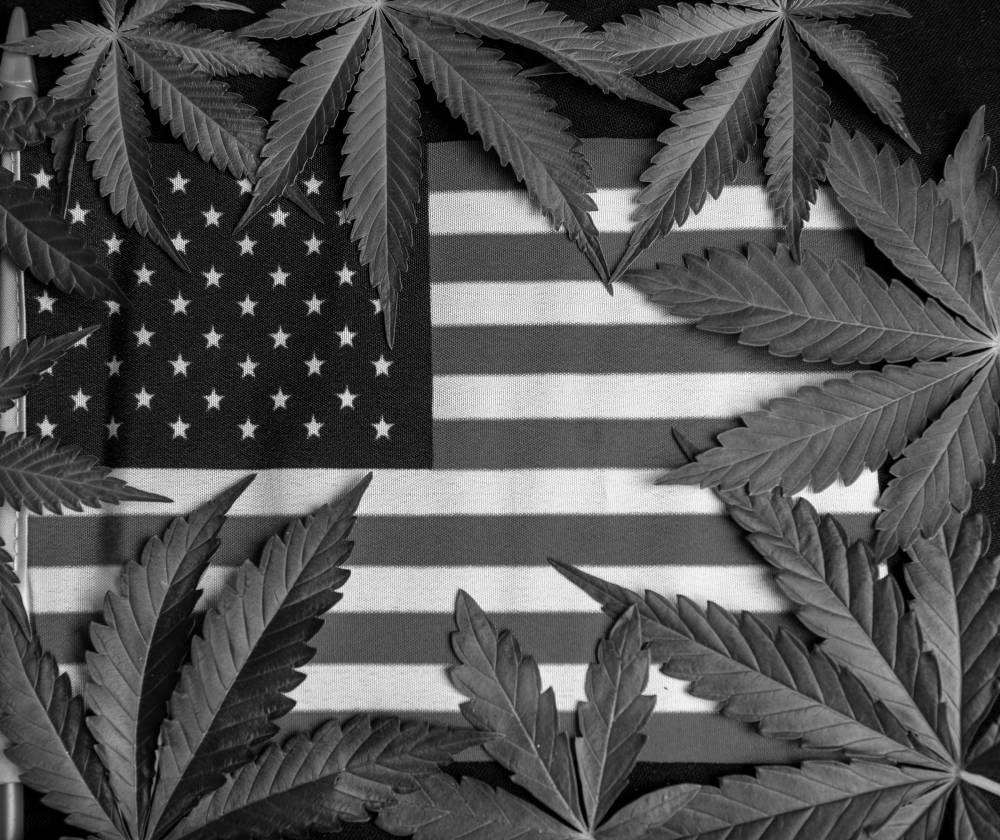By Bill Weinberg
The United States is finally winding down two decades of post-9-11 military commitments. But for many veterans, the war isn’t over. All too many continue struggling with the personal aftermath of combat. A recent study entitled “Invisible Wounds” found that 20% of the vets who served in Iraq or Afghanistan suffer from major depression or PTSD. The crisis of suicides and opioid abuse among veterans suggest that the support our soldiers are getting is woefully inadequate.
Cannabis as Medicine
Unsurprisingly, a growing number of veterans are looking to cannabis to provide relief from PTSD and to manage chronic pain. According to a 2019 survey conducted by Iraq & Afghanistan Veterans of America (IAVA), 75% of vets say they would consider using “cannabis or cannabinoid products as a treatment option.” A further 83% expressed their support for medical access to cannabis for vets, while 63% believed that the VA should “allow for research into cannabis as a treatment option.”
There has been some limited progress in recent years. In 2017, the VA issued Directive 1315, which states: “Veterans will not be denied VA benefits because of marijuana use.” Yet veterans are still being punished for cannabis use, denied benefits through various loopholes in the Directive. And in states with no medical marijuana programs, vets have no options outside the illicit market.
VA Intransigence
And unfortunately, it doesn’t look like this situation is changing any time soon. In a particularly discouraging move, the VA stated in Congressional testimony last month that it continues to oppose the pending VA Medical Cannabis Research Act of 2021. The bill—earlier versions of which cleared the House Veterans’ Affairs Committee in 2020 and 2018—would require the VA research the use of cannabis for conditions such as PTSD and chronic pain. It was approved by the Veterans’ Affairs Committee once again on Nov. 5.
The bill is the latest in years of legislative efforts to assure that vets will not be penalized for using medical cannabis, and that VA doctors may freely discuss both the potential benefits and risks of cannabis use with their patients. None have even made it to a floor vote, and all have met with opposition from the VA.
This despite mounting evidence of the efficacy of cannabis in treating precisely the conditions that vets are wrestling with. To cite but one recent example, a 2020 study by a team of researchers from Michigan's Wayne State University, published in the Germany-based journal Psychopharmacology, found that THC “can produce anxiolytic [anxiety-relieving] effects,” and “reduce threat-related amygdala activation”—the amygdala being that part of the brain responsible for emotions such as fear and aggression. “Together,” the team stated, “these findings suggest the cannabinoid system as a potential pharmacological target in the treatment of excess fear and anxiety.”
Veterans In Their Own Words
 Tim Tofaute is security director for Operational Security Solutions (OSS), a Fresno-based company that provides cash-in-transit and related services for the legal cannabis industry in California and other states. The OSS team mostly consists of former military and law enforcement professionals, and Tofaute is a veteran of the Navy SEALs. Stationed in the Philippines as a SEAL, he was involved in drug enforcement missions on the Thai-Laos border in the late '80s and early '90s. He later worked as a private contractor for Blackwater and others in Afghanistan. Altogether, he boasts 25 years in special operations.
Tim Tofaute is security director for Operational Security Solutions (OSS), a Fresno-based company that provides cash-in-transit and related services for the legal cannabis industry in California and other states. The OSS team mostly consists of former military and law enforcement professionals, and Tofaute is a veteran of the Navy SEALs. Stationed in the Philippines as a SEAL, he was involved in drug enforcement missions on the Thai-Laos border in the late '80s and early '90s. He later worked as a private contractor for Blackwater and others in Afghanistan. Altogether, he boasts 25 years in special operations.
“Cannabis should be a treatment option for veterans that may have PTSD or TBI [traumatic brain injury] issues,” Tofaute tells Farmer & the Felon. “I have experienced being prescribed opioids, and I finally elected to deal with the pain because I didn't like the side effects those medications were having on me. I also had a couple of really good friends of mine who got blown up pretty bad in combat, and the opioid prescriptions were just horrible for them. The addiction was pretty tragic; it impacted their families, one ended up in pretty nasty divorce.”
Tofaute says there is a culture of self-medication among special operations personnel that lends itself to abuse. “People didn't want to get pulled off missions, so the tradition is—don't show pain. Certain forms of self-medication were acceptable, such as alcohol, and traditional western prescription meds. And these are readily available in civilian society.”
He again points to his own experience—this time with the pain-killer Norco. “I was given a four-month prescription with six, seven refills in the mail from the VA, all at once.” Tofaute says he gets why this is done. “Especially in some areas of the western states, it can take people a lot of driving time to get to a doctor, so I understand the VA is doing the best they can. But the responsibility falls on the user to be self-disciplined.”
But Tofaute says he has a couple of friends from his special ops days who got off opioids and are now using cannabis to control pain and relieve stress. “One friend was dealing with anxiety, cold sweats, as well as pain issues from getting blown out of a vehicle in Iraq,” he relates. “Cannabis seems to have a lot more of a positive effect for this person than drinking a case of beer a day or abusing opioids—which is what a lot of veterans have been doing, because they could.”
Even now, however, cultural barriers still need to be overcome for cannabis to be accepted as medicine for vets. “Dope-smoking is really frowned upon by some industries for veterans who remain in security in the private sector,” Tofaute says.
Which is why he sees the VA Medical Cannabis Research Act as so important—its passage could further erode the stigma. “This legislation could have a very positive ripple effect that could help out a lot of people,” Tofaute says. “It would at least open doors to exploring in the right direction.”
“This is an issue for anyone in emergency services or law enforcement,” Tofaute concludes. “It’s time to put aside prejudice and look at cannabis as a treatment option, under medical supervision, and an alternative to what’s currently available now.”
Farmer and the Felon is committed to advocating for social justice and cannabis reform. Join us in the fight for veteran access to cannabis by signing the petition.
Bill Weinberg is a 30-year veteran journalist in the fields of drug policy, ecology, and indigenous peoples. He is a former news editor at High Times magazine, and produces the websites CounterVortex.org and Global Ganja Report.

